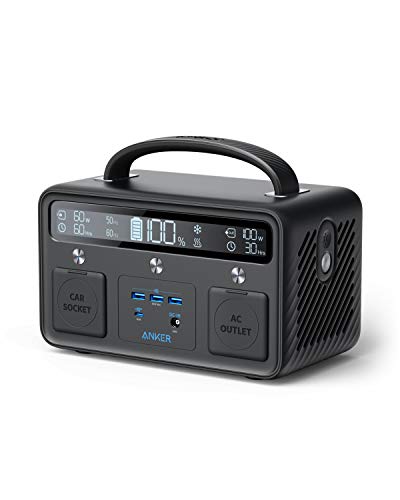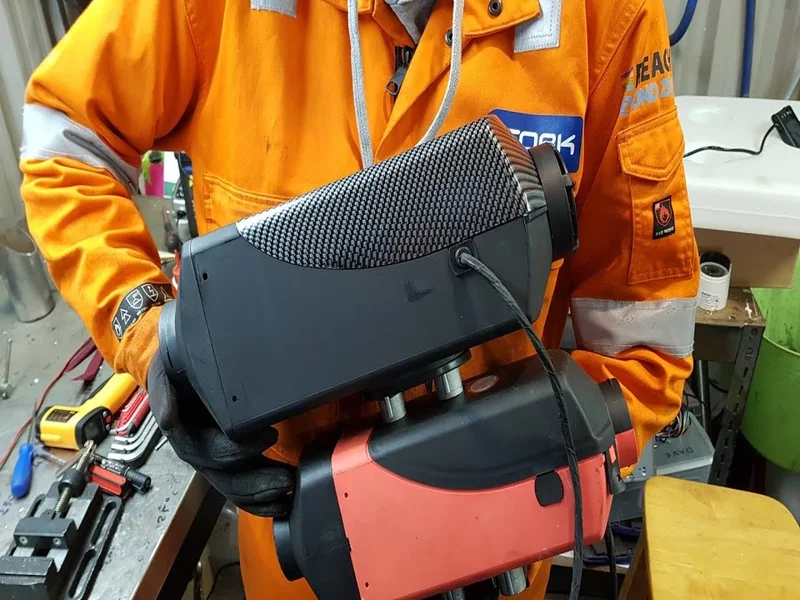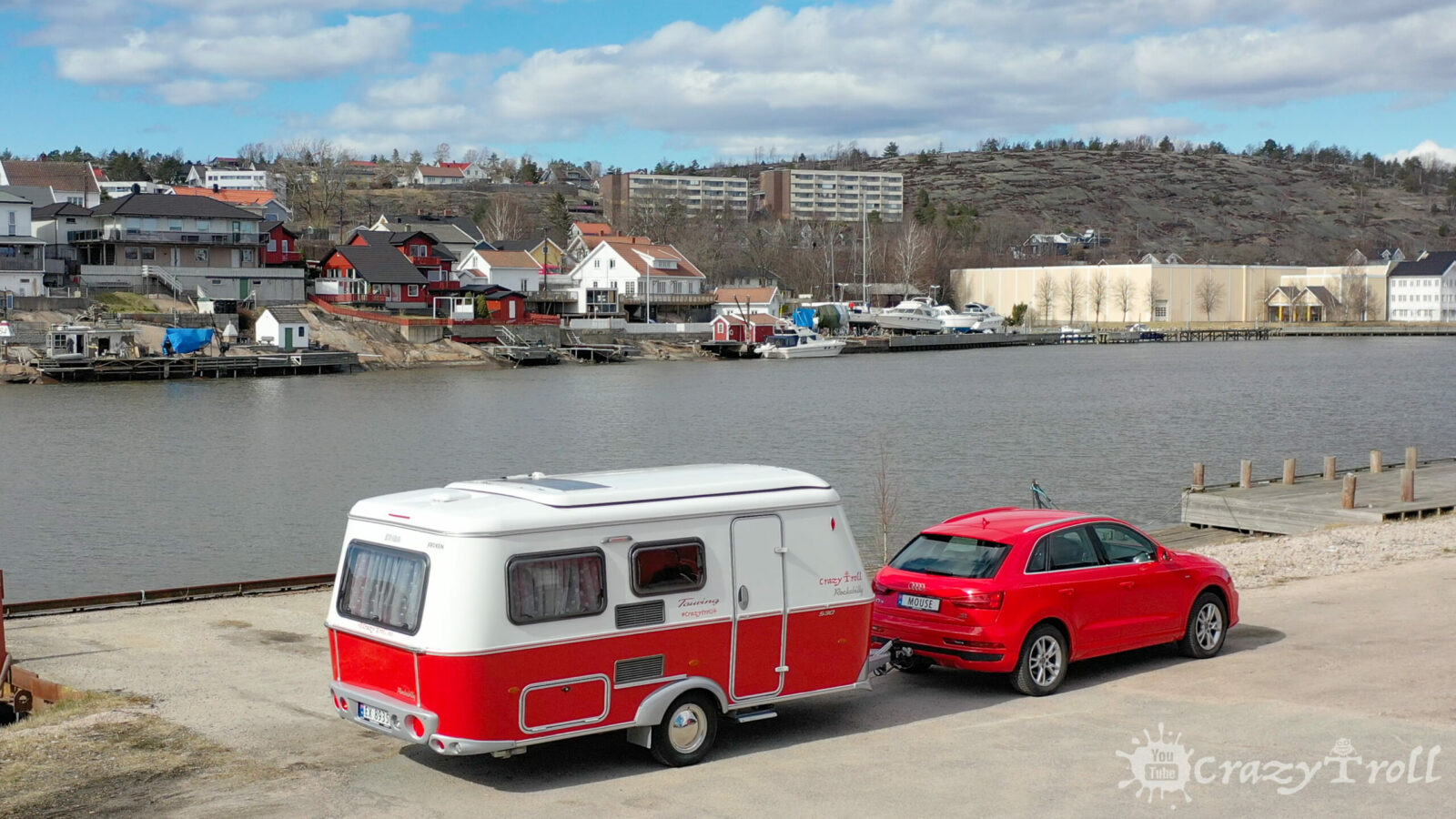Your RV has the capability of providing multiple mediums, in terms of power for your various devices and living spaces. There is no “one size fits all” approach and if you want to watch TV, without a generator to supply you with power, there are three methods in which you can do it.
You can utilize the coach/house batteries, a power station that is relatively sizeable, insofar as how much charge it both takes and supplies, and you can always go with solar power.
Each power source has its own benefits and drawbacks, however, if you have a system—or maybe it would be better to say, a timetable—any of these three methods can serve as a reliable source of power for watching TV.
Your Overall Capacity
This is important because, if you don’t have more than one source of power, you have to run multiple things off of one source. While a TV won’t chew up as much energy as you think it would—AC and microwaves do enough of that on their own—it may be the proverbial straw that breaks the camel’s back.
If you’re going to go with solar panels, you’ll have to deal with the fact that the sun doesn’t shine 24 hours a day, seven days a week, even if we would like for it too. A power station is great, but will only focus on a single thing at a time and it isn’t everlasting.
Lastly, the coach/house power supply will require an inverter (so will the solar panel batteries) in order to convert to 110/240V to run a standard TV. You could always opt for a 12V TV, but it’s going to be smallish and nowhere near as nice as the typical, HD sets in the home.
No matter what you choose to go with for your power source, it’s probably best to stay away from a 70” monster, 8k smart TV set that costs nearly as much as your RV. A TV like that will suck your battery dry before you can even attempt to crank up the air conditioner.
Solar Power
Solar power may not be the answer to the world’s green energy needs. After all, while the sun is dependable as ever, the sky is not and you’re just as likely to experience three straight cloudy days as you are to get one that’s full of sunshine.
However, it’s almost as if harnessing and storing the power of the sun was tailor-made for RVs and camping in general. You’re already portable, as you travel the roads across the country, so why not make your energy needs portable as well?
The average, 50” smart TV will burn through about 90W – 100W per hour. Of course, you can always adjust the settings so that the TV is in power savings mode when you’re watching it on a finite power source.
Knowing that, you will want a solar panel that can keep up with that level of drain, along with everything else that you will be using it for throughout the say. Another option is to use a generator throughout the day, turning it off for some peace and quiet at night, and switching to the solar fueled batteries for the TV.
The other issue is that, unless you have a 12V TV, solar panels are most likely going to run through your coach battery, which means that you’re going to need an inverter. An inverter will connect to your RV battery and convert the 12V to 110 AC current for you to plug your TV into.
Advantages of Solar Power
- Installed on the roof, they will maximize your interior space
- Free energy
- Three types of panels to choose from
- Versatility
There are three types of solar panels that you can choose from: monocrystalline, polycrystalline, and amorphous. The kind that you want, if you’re looking at a permanent solution for the power needs of your accessories, is the monocrystalline, as they are the most efficient and hold more charge.
You can choose the kind that you set up each and every day or the permanent roof mounts. You should go with something like the Renogy 400-watt, 12-volt solar kit. If you plan on doing a lot of TV-watching at night, it will keep those batteries topped off, giving you more TV time than you’ll probably wnat.
You can settle for standard, lead-acid batteries but we would suggest lithium-ion 12-volt, as they store much more charge than lead-acid and are more efficient, which means they will last longer.
Portable Power Station
A portable power station is a great idea for any kind of primitive camping or just camping in a place where you know that your power options will be limited.
There are multiple ways to keep a power station charged up but one of the best ways is to use solar power during the day, when you’re not using the TV and you’re not settling in for the night.
Depending on what kind of power station that you want to go with, you can either get a whole lot, or just enough. For running a TV, or any other similar device, even up to a mini fridge, we recommend the Anker Portable Power Station.

If you really want to go crazy and get something that can practically power your home, you could go with the Yeti 1500x Portable Power Station. When it comes to the Yeti, it was built with the idea in mind that you might drop it off of the side of a mountain and still need it to work.

At 1500W, you can run your entire RV for a time. It can power refrigerators, laptops, TVs, microwaves, cellphones, and lights and it can do most of that at the same time and still last a while.
The Anker version is really toned down, however, its still a very powerful device and will run your smart TV while also running your MiFi hotspot or WiFi so that you can stream all night or until your heart is content.
Advantages of a Portable Power Station
- Portability means you can take it anywhere
- Newer models are optimized for solar charging
- No fuel, no waiting for the sun, and no noise
- Very low maintenance
- Safe for indoor use.
Most portable power stations already have a built-in inverter, so there’s little else that you need to do to plug in your devices and start enjoying your latest series on Netflix.
Coach/House Battery
This is the most common power source for new RV owners, mostly because it is immediately available and also because they haven’t explored all of the options out there just yet.
When it comes to using this power source, like solar power, you will likely have to purchase an inverter to switch the 12-volt to the 110v that your TV needs to operate. Unless, of course, you decide to go with a 12v TV.
There are plenty of great options if you need an inverter, such as the AIMS Power 2000. When you visit the website or go to Amazon, you can choose from a variety of watts, according to what you need.

The AIMS is also packed with safety features, like short circuit protection. It only has two outlets, but if all you’re looking to do is run your TV, that won’t be much of a problem.
The biggest advantage that you get when you just go off of the coach battery is that you don’t have to do anything outside of purchasing an inverter. The battery receives its charge from the alternator, just like any car battery does.
However, you can also hook a solar panel to it as well. As you drive throughout the day, the alternator keeps the battery topped off but when you’re not moving, everything that you tap into the battery for drains it even more.
If you hook a solar panel to it, such as a simple, fold-out panel, you will minimize the loss and gain some back whenever you aren’t using it.
Advantages of Using the Coach Battery
- Nothing more than an inverter needed
- Nothing additional to carry
- Easy to hook a solar panel to
- Charges itself while driving
- You can stack batteries to it
The last feature is also a great advantage, especially if you decide to add on a solar power option. You can add batteries to the overall package and really build yourself quite the power storage network, especially if you have good storage space for the extra batteries.
If you decide to go with lithium-ion batteries, so much the better.
All Things Considered
The days have having to crank up a load generator, keep it maintained, and keep it fueled are falling farther and farther behind as we continue to make advancements with other forms of power.
Solar panels may not be for everyone, but if you’re frequently camping and enjoy your late-night TV, solar panels will keep your batteries topped off and give you plenty of time to catch up on the news, watch movies or binge-watch a series on Netflix.








